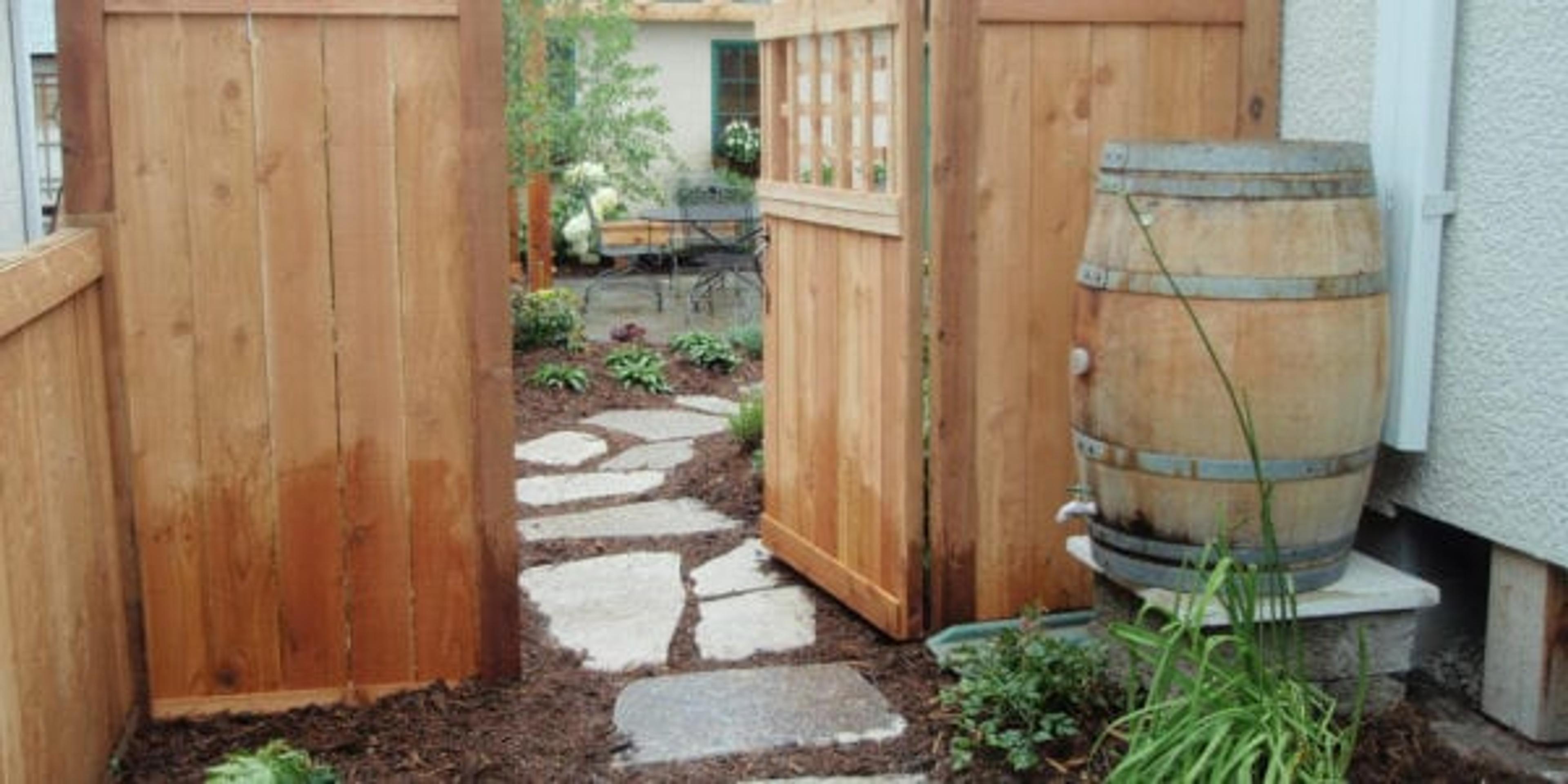Prevent Pollution, Water Your Garden for Less with a Rain Barrel

Julie Bitely
| 3 min read

If you want to see full blooms in your flower or vegetable garden this summer, consistent watering will likely be necessary.
Harnessing rain water for use in your home garden is relatively easy and it can help ease downstream water pollution while saving you a little cash to boot. Many home gardeners have turned to rain barrels for just this purpose.
Ondrea Spychalski is the Water Programs Outreach Coordinator for the West Michigan Environmental Action Council (WMEAC). Some call her the rain barrel whisperer. She leads workshops in West Michigan that show homeowners how to make and install their own rain barrels. Since the program started five years ago, WMEAC has helped people construct 3,000 rain barrels. Spychalski estimates that’s kept about 18 billion gallons of storm water out of the Great Lakes.
When it rains, storm water will run over impervious surfaces and collect pollutants such as oil, gas, and soil that contains pesticides and fertilizer. These non-point source pollutants are the leading cause of pollution in the Great Lakes, Spychalski said.
Rain barrels are connected to your home’s gutters and capture rain from your roof for use in watering your garden or potted plants. Because the water goes directly into the soil, which acts as a natural filter, you’ll be doing your part to reduce the amount of pollutants that end up in the water system. Spychalski said a 55-gallon barrel can collect about 1,800 gallons of water over a summer season. It also saves about $23 in water costs and plants thrive on it because of the nitrogen it contains, which you won’t get from treated water.
There are no laws limiting the use of rain barrels in Michigan, although you might want to check your local ordinances to make sure. WMEAC has step-by-step instructions for creating your own rain barrel here. For a more decorative approach, check out this pictorial guide.
Here are a few tips for getting the most out of your rain barrel:
- If you want a lot of water pressure, install the barrel higher off the ground. Spychalski said a soaker hose can be used if the barrels are raised three to four feet off the ground.
- Don’t worry about algae. Spychalski said it’s perfectly normal for it to grow in a rain barrel. It’s not harmful and it actually adds nutrients to the water.
- Install a net on your rain barrel to keep mosquitos at bay. Use rain water within 48 hours so it isn’t standing.
- Never drink or bathe with water from your rain barrel.
- Apply water from the rain barrel directly to the soil your plants are growing in – never directly on plants, especially vegetables or fruits you plan to eat. Always wash edible plants before you eat them, no matter where they’re from or how they’re watered.
- Make sure your rain barrel is emptied in the winter and stored upside down, preferable indoors, to avoid cracking and leaks.
If you live in West Michigan, check out WMEAC’s upcoming rain barrel workshops. All sessions include everything you need to set up your barrel and take around 45 minutes.
If you liked this post, you might also enjoy:
Photo credit: Field Outdoor Spaces





